Hey there! If you or a loved one has recently been in the hospital, it's essential to ensure a smooth transition back home with proper follow-up care. Following hospitalization, taking steps to monitor recovery and maintain health can make all the difference. In this article, we'll explore effective strategies for post-hospital care and how to stay in touch with healthcare providers to prevent any setbacks. So, stick around and let's dive deeper into creating a robust follow-up plan!
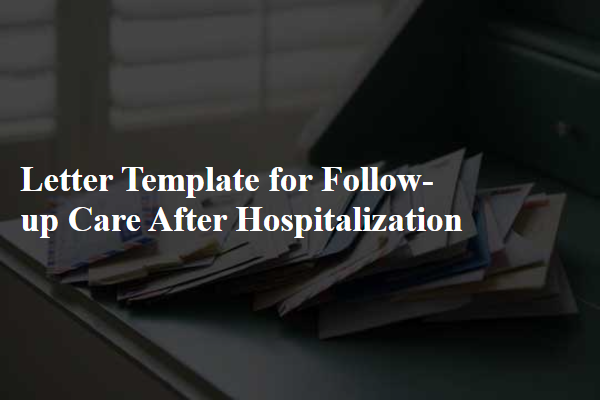
Patient Information
Follow-up care after hospitalization is crucial for patient recovery and ongoing health management. Discharge documentation typically includes patient information such as name, date of birth, and medical record number, crucial for identifying the individual in healthcare settings. Essential contact information includes primary care physician details and emergency contacts, ensuring prompt communication in case of complications. An overview of recent hospital events, including admission and discharge dates, diagnoses such as pneumonia or myocardial infarction, and treatment received, provides valuable context for future care. Follow-up appointment dates with specialists and specific instructions for medication, diet, and exercise are vital for adherence to post-hospitalization care plans. Additionally, any warning signs or symptoms that necessitate immediate medical attention should be clearly outlined to empower patients in self-monitoring their health.
Hospitalization Details
Following hospitalization, patients often require structured follow-up care to ensure recovery is progressing appropriately. Key details during this process include the specific dates of hospitalization, for example, from October 1 to October 5, 2023, at General Hospital in Springfield. The primary diagnosis leading to hospitalization, such as pneumonia, necessitates careful monitoring post-discharge. Follow-up appointments should be scheduled within one to two weeks to assess recovery progress, ensuring treatments like antibiotics are effective. Patients must also receive instructions regarding signs of complications, such as fever over 100.4 degrees Fahrenheit or increased shortness of breath. Prescriptions may include medications like inhalers or pain relievers, requiring pharmacist consultations. Additionally, a support system involving family or community healthcare workers can improve recovery outcomes. Documentation of follow-up care plans should be clear and accessible, fostering effective communication between healthcare providers and patients.
Follow-up Care Instructions
Follow-up care instructions are essential for ensuring recovery after hospitalization. A discharge summary provided by healthcare professionals contains critical information regarding medication (dosage and timing), scheduled follow-up appointments (dates and healthcare provider details), symptoms to monitor (such as increased pain or unusual swelling), and lifestyle modifications (dietary changes or physical activity recommendations). Adherence to these instructions is crucial for preventing complications, particularly for patients recovering from surgery or chronic conditions such as heart disease or diabetes. Engaging in follow-up consultations (typically scheduled within one to three weeks post-discharge) can facilitate early identification of any concerns, ensuring optimal healing and health management. Families and caregivers are encouraged to assist in following these guidelines to enhance the recovery process and support the patient's overall well-being.
Contact Information for Inquiries
Follow-up care after hospitalization is crucial for patient recovery and ongoing health monitoring. Important details include a thorough assessment of discharge instructions which may relate to medications, dietary restrictions, or physical therapy sessions. Contacting a dedicated follow-up care team, usually located within the hospital system like [Hospital Name] in [City, State], ensures patients receive comprehensive support. Inquiries should be directed to the patient liaison office at [Phone Number] or [Email Address], enabling patients to clarify any questions about their care plan. Additionally, scheduling follow-up appointments with healthcare providers within [specified time frame] promotes timely recovery and helps address any emerging health concerns.
Appointment Scheduling Details
Post-hospitalization care is crucial for patient recovery, especially after major procedures like heart surgeries or orthopedic operations. Follow-up appointments should be scheduled within 7 to 14 days after discharge to monitor healing. The attending physician may recommend various tests, including blood work or imaging scans (like X-rays), to assess progress. Patients should be informed of potential signs of complications to watch for, such as unusual swelling or persistent pain. Locations for follow-up visits can vary; some might take place in outpatient clinic settings within local hospitals or dedicated rehabilitation facilities, ensuring easy access for patients. Adequate communication regarding appointments (date, time, and physician's details) is essential for a smooth transition back to routine care.

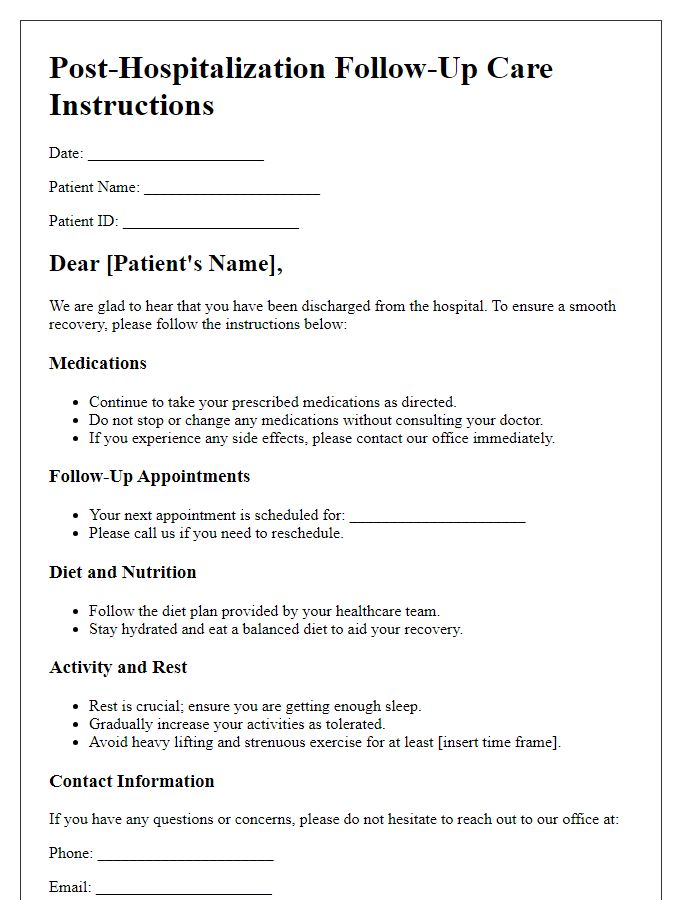
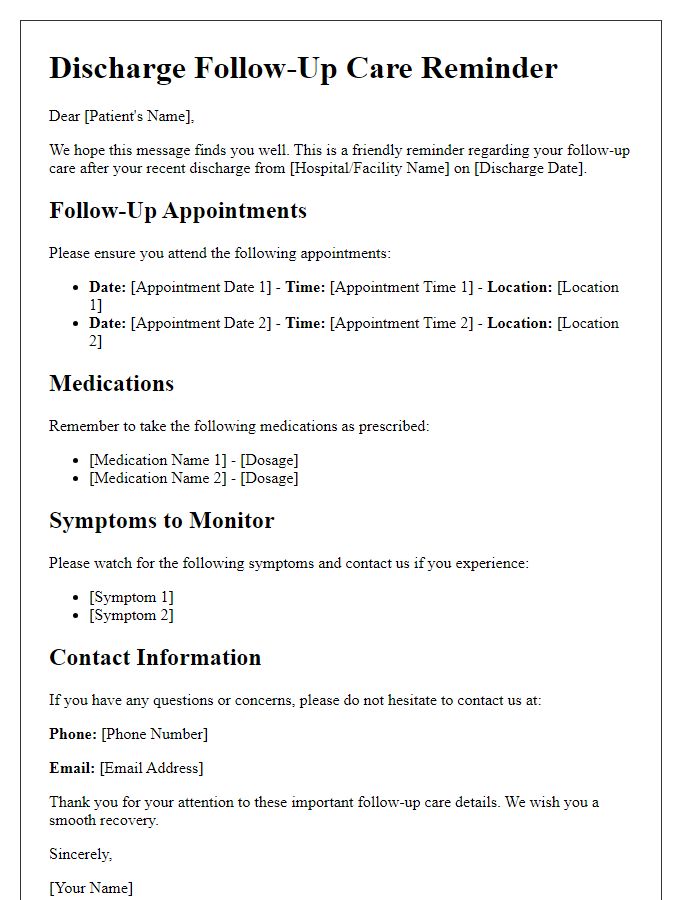
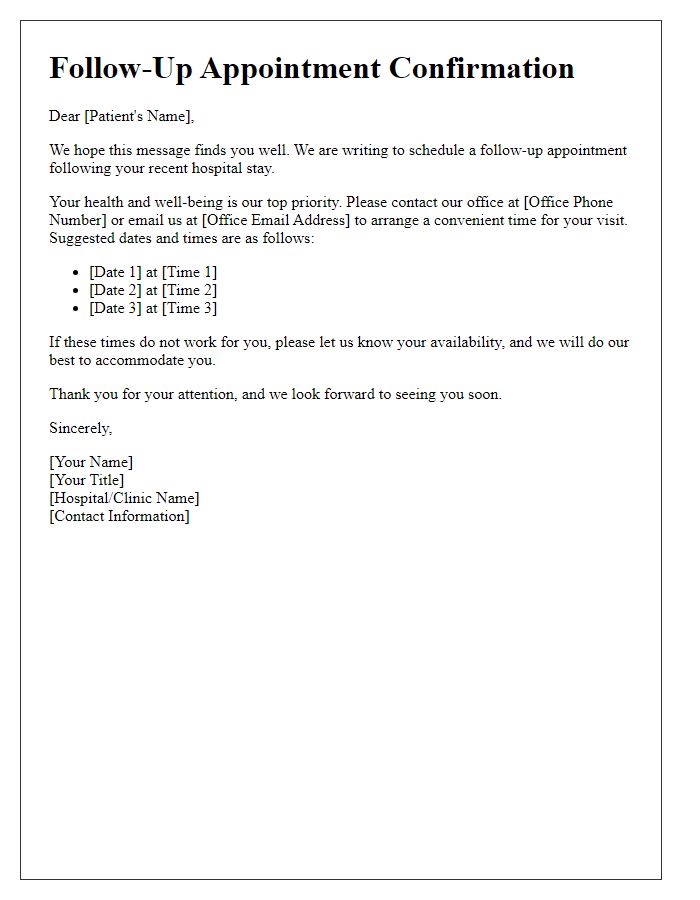
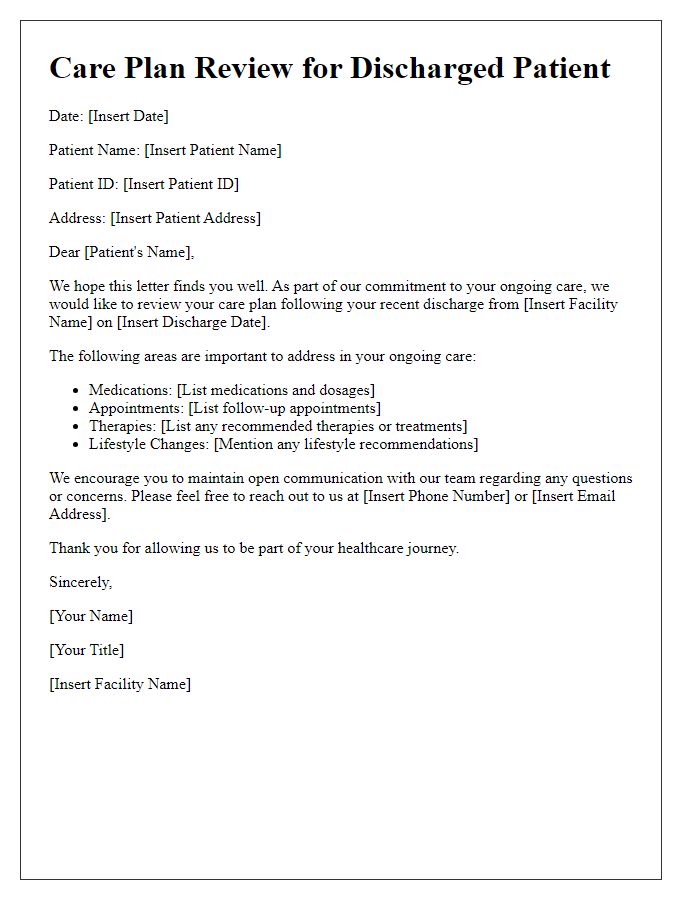
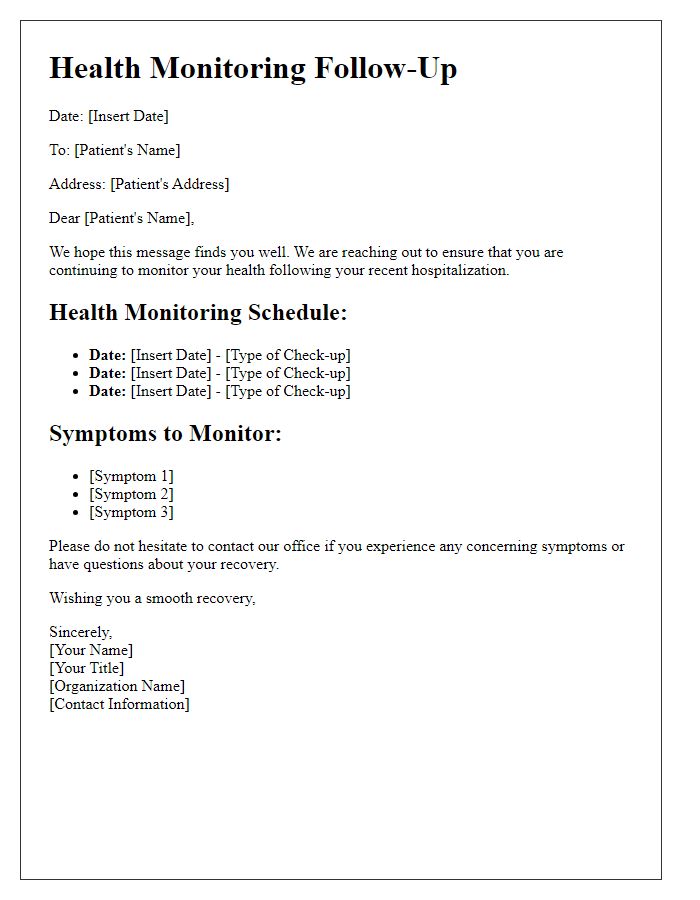
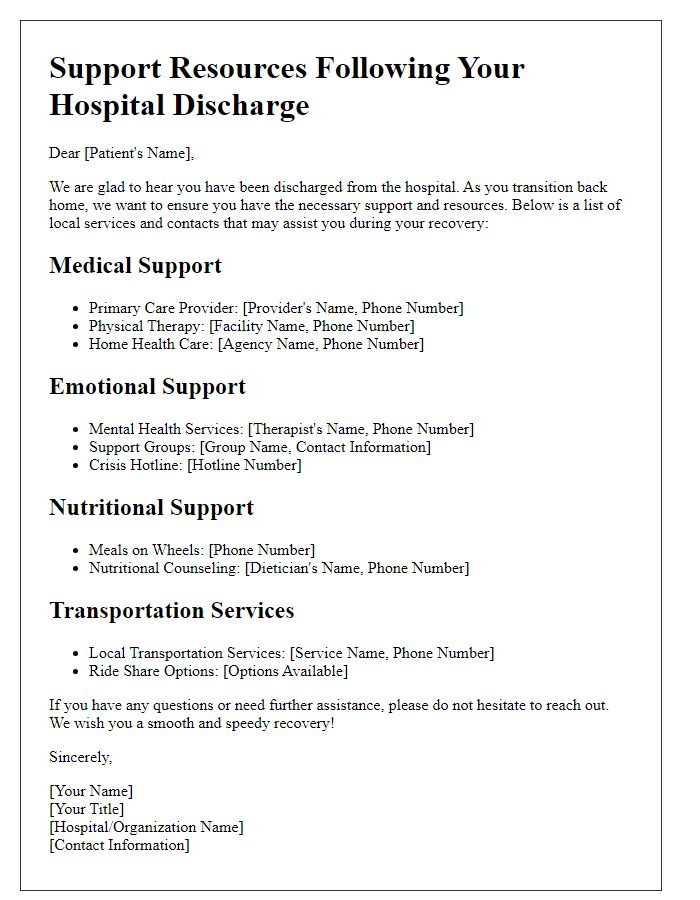
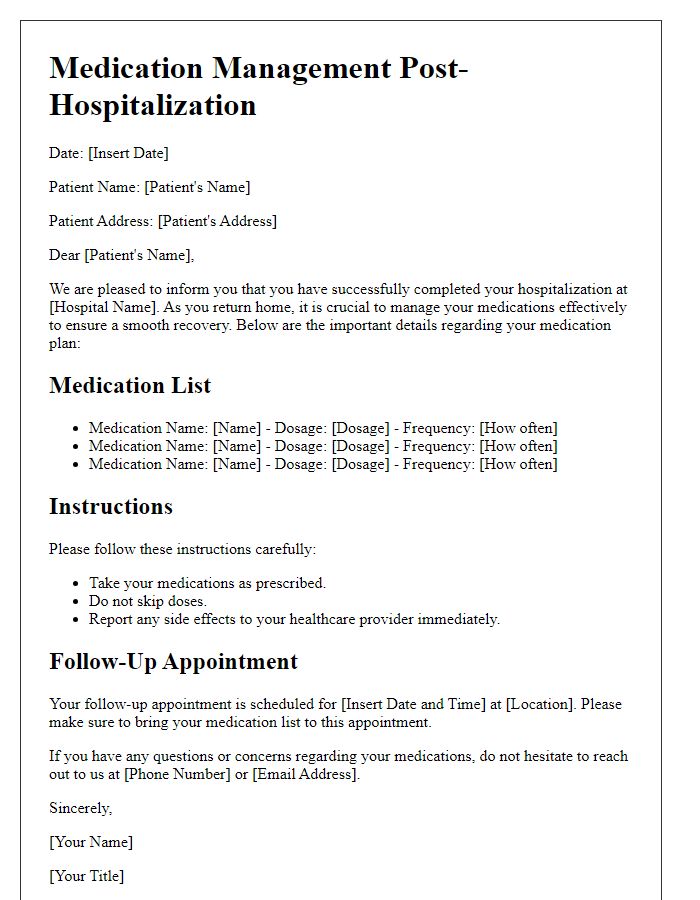
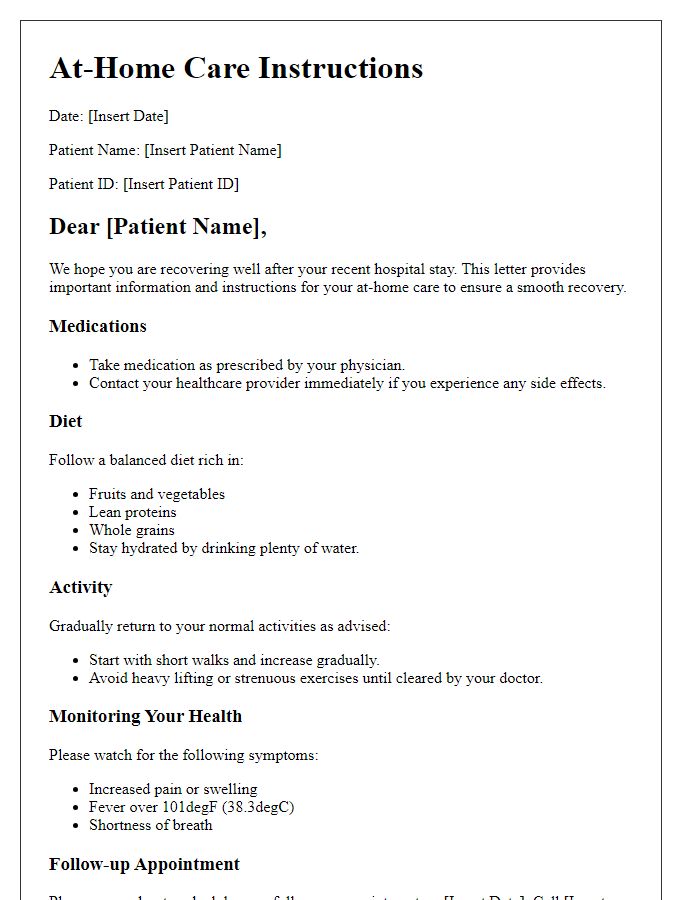
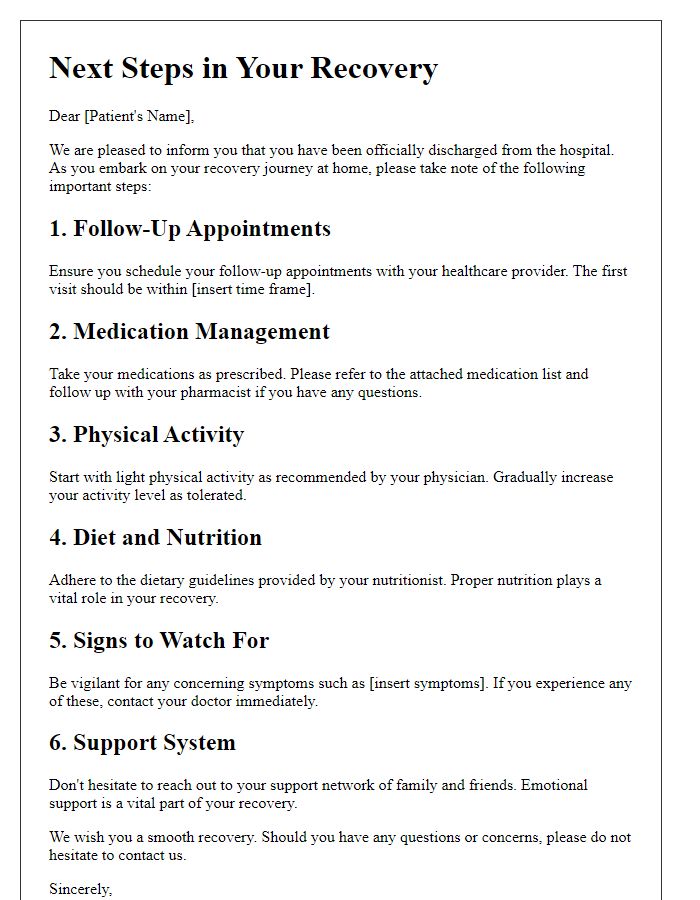
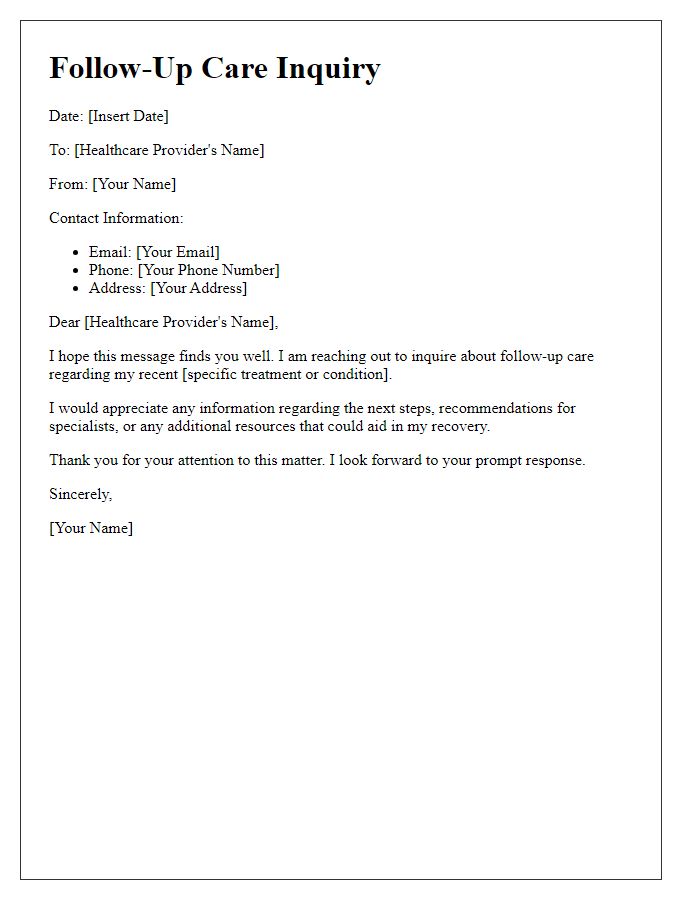


Comments